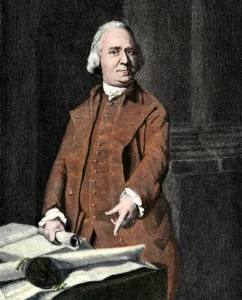Americanism Redux
November 15, 250 years ago today
So. This is what the boss wants. Wants me to give my thoughts as to how we can make things better around here, make things work right, make things the way they ought to be.
Oh really? Well, it’s about time. Happy to oblige.
Buckle up. Here we go. The do’s and the don’ts. I’ve got clear answers.
Do…stop expanding. No more. Hold off new expansions until we get this right in the places we’ve already started.
Do…give the resources needed to survive and then to thrive. Find the stuff and get the stuff out to where it’s used.
Don’t…trust specific groups of people. My list of the untrustables might surprise you—the people already here, the natives, yes, but also some of the people who we brought here and are part of us and to whom we’ve delegated power and authority. They don’t deserve our trust either.
Do…admit that power can corrupt people who are given power. We may have had good intentions but some people have shown they care more about the power than about anything, and anyone, else.
Do…treat people fairly no matter what group they’re part of, and pay people who’ve earned a reward, again, no matter what group they belong to.
Do…the hard, day-to-day work that helps people find meaning and a higher purpose in their lives.
Do…punish, and punish severely, those who steal.
Don’t…think our problems today are the same as they were when we first started out; they’re not, it’s different now.
Do…think through recent calls for more military force and more military equipment. Be careful, be cautious, be certain you’re doing it for the right reasons.
Also
Today, 250 years ago, Rafael Verger finishes this document, a report of recommendations. Verger is director of the San Fernando Mission College, located in Mexico. He is fifty years and one month old, and has been in the New World for half his life. The Spanish viceroy has asked Verger for his thoughts on the proper Spanish colonial administration of Catholic missions in the New World province known as California. Verger’s report runs to twenty-two recommendations covered in forty-six pages.
(Verger)
Also today, on the other side of the planet, in England, another man has written a document for publication. His name is Thomas Paine and he has published his first essay for public sale. Like Verger, Paine sees the damage done by corruption and power. In his case, Paine believes the salary given to local customs officials should be raised so as to stop these low-level government workers from stealing from the public. A higher pay, Paine reasons, will make them less corrupt. Everyone will benefit, he asserts in his essay. Unlike Verger, Paine’s recommendation is for England’s own rule at home, in England, and not for its colonies elsewhere. The day will come, however, when Paine writes another document, which will be forty-six pages long, exactly the same as Verger’s report. Paine’s forty-six page document will explode onto the scene and its shock waves will span the globe.
(Paine)
And finally today, roughly half-way between Verger and Paine on the map, in Boston in the British colony of Massachusetts, Samuel Adams is hard at work on a writing he will print in a friendly newspaper in the next few days. But it’s more than that, really. It’s going to be a statement of “the Rights of the Colonists and of this Province in particular, as Men, as Christians, and as Subjects.” The statement will be adopted by a vote of the Boston city council—a seal of approval, if you will—and then distributed through the new Committee of Correspondence (CofC), to similar groups in other communities. The network of CofCs was Adams’s idea, less than a month old.
(Adams)
Adams has written his first lines: “Among the Natural Rights of the Colonists are these First, a Right to Life; Secondly to Liberty; thirdly to Property”…His quill pen races across the pages.
Verger’s private report from New Spain.
Paine’s public recommendation from Old England.
Adams’s coastal declaration from New England.
You Now
Problems and pitfalls. They can be singular and complete to themselves. If enough of them occur together, in a continuous string, they become declines and downward spirals. Somewhere along the way, motives and attitudes will be attached.
The how and what and why of change in these two conditions (singular or multiple) is both a response and yet also separate and active thing to itself. Responses will have a content and a context and, like the one or multiple problems to which they are applied, a spirit as well as outlook unique to the response or responses. The change will be more than the addressing of the moment’s situation. It will be part of something bigger.
Verger had a perspective on change and on the conditions that he believed required change. He wanted a broad-based set of actions taken.
Paine had a perspective, too. He advocated a specific change for a specific purpose with, he thought, a specific consequence.
Adams’s perspective went both higher and lower at the same time. He sought first principles, the most basic elements, a version of RNA and DNA in the body politic and his political community. In going to the very root of things he actually attained a height of vision and an elevation of framework that spanned from terrestrial to celestial, from ground to God.
As things stand right now, I wonder which of the three seems closest to your posture and position. And what would it take to move you to the next? Would you think it a negative or a positive? Which seems further off, the negative or the positive?
Suggestion
A look at your own posture and position right now can help you prepare for a change that might be coming, whether it’s in the do’s and don’ts, a specific policy, or a broad-based and deeply-set rebirth.











